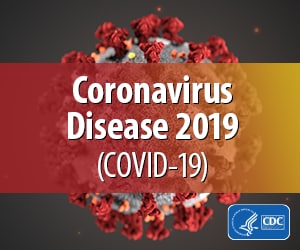South Carolina: University and Health Department Empower Underserved Communities with Accurate COVID-19 Information
Recipients of the National Initiative to Address COVID-19 Health Disparities Among Populations at High-Risk and Underserved, Including Racial and Ethnic Minority Populations and Rural Communities grant are telling their success stories of how they are addressing COVID-19-related health disparities and advancing health equity through programs and activities funded by the grant.
Challenge
At the height of the COVID-19 pandemic, reliable information about the virus and vaccine safety was lacking in South Carolina’s underserved communities. With funding from the Centers for Disease Control and Prevention’s National Initiative to Address COVID-19 Health Disparities Among Populations at High-Risk and Underserved, Including Racial and Ethnic Minority Populations and Rural Communities grant, the SC Department of Health and Environmental Control (DHEC) and educators from South Carolina State University (SCSU), one of eight historically Black colleges and universities (HBCUs) in the state, partnered to raise awareness about COVID-19 and disseminate accurate information to underserved communities.
Solution
SCSU professors led a team of educators and students in organized efforts to provide educational opportunities to 1,400 South Carolina residents, spanning 13 counties and 11 cities across the state. They developed the SCSU Center for COVID-19 Health Information and trained 50 Community Health Coaches—students and community members—with two-hour, COVID-19 virtual training modules. These coaches then hosted in-person dissemination sessions to share accurate information about COVID-19.
They also hosted 22 listening sessions to give community members opportunities to voice their concerns in a safe environment about COVID-19 vaccines; 89% of attendees were African American people—a community prioritized by the team’s efforts as largely affected by COVID-19 vaccine hesitancy. From these listening sessions, the team tailored, presented, and disseminated materials (e.g., flyers and presentations) during face-to-face town halls, forums, and community events to address: 1) the fear of getting COVID-19 even if vaccinated, and 2) misinformation, disinformation, and conspiracies about the virus and vaccine.
Outcome
SCSU’s impressive work in underserved communities to address COVID-19 health disparities demonstrates the DHEC core value of embracing service, the strategic pathway of education and engagement, and the agency goals of promoting healthy outcomes and partnering with stakeholders and communities. All of these activities were accomplished with the aim that underserved South Carolinians would be able to make informed decisions about their healthcare—and ultimately mitigate the spread of COVID-19.
This grant is funded through the Coronavirus Response and Relief Supplemental Appropriations Act, 2021. The views expressed in this material reflect the opinions of grant recipient authors and do not necessarily reflect the official policies of the CDC; nor does mention of trade names, commercial practices, or organizations imply endorsement by the US Government.
